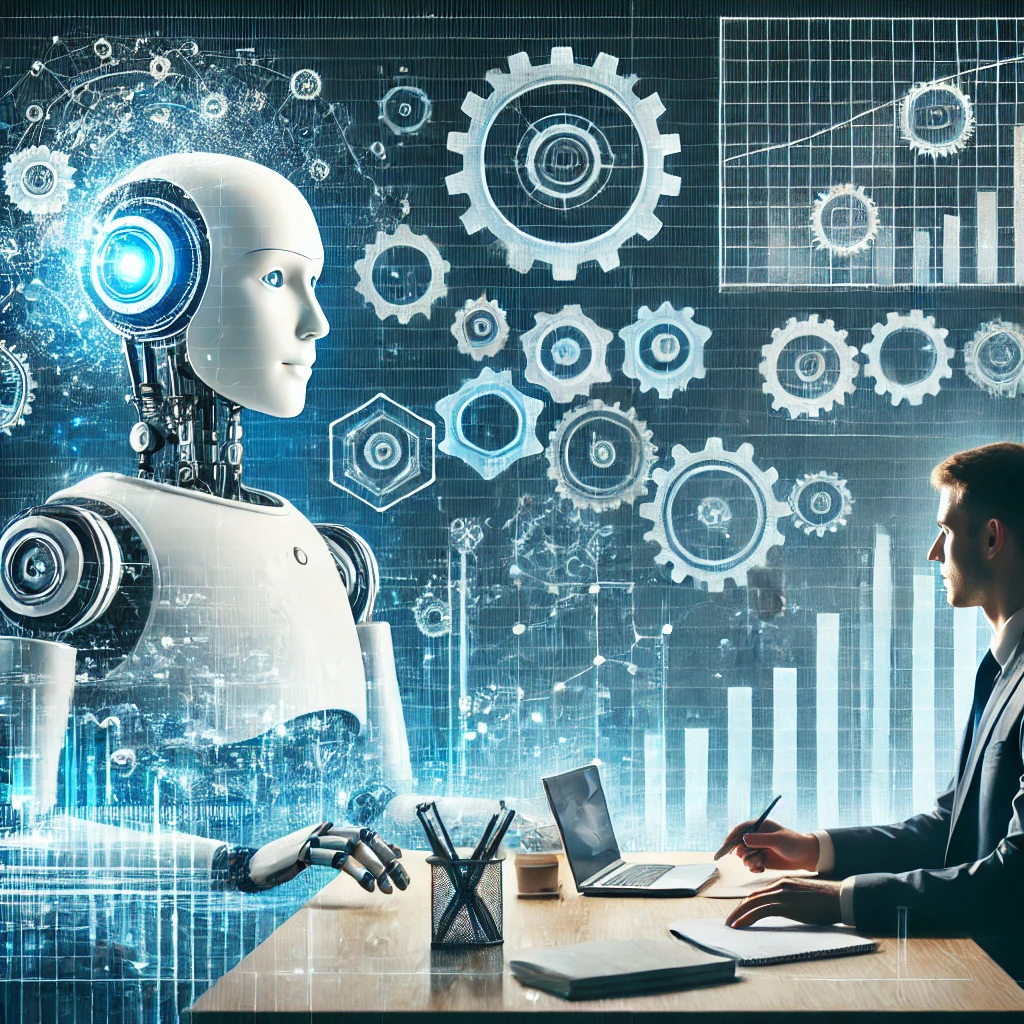Introduction: Artificial Intelligence (AI) and Its Impact on Jobs
Artificial Intelligence (AI) and Its Impact on Jobs is transforming industries at an unprecedented pace, reshaping the way we work and live. From automation in manufacturing to advanced data analysis in healthcare, AI is revolutionizing countless fields. However, with these advancements come questions about the future of human jobs and how AI will impact employment.
How AI is Reshaping the Workplace
AI is more than just automation; it’s about enhancing decision-making, improving efficiency, and driving innovation. Many industries are now incorporating AI technologies to streamline tasks, reduce human error, and save time. In sectors like finance, healthcare, and customer service, AI-powered systems handle repetitive tasks, allowing employees to focus on strategic work.
Job Displacement vs. Job Creation
One major concern is that AI will replace human jobs. It’s true that certain jobs—particularly those involving repetitive tasks—are at risk. For example, roles in manufacturing, data entry, and telemarketing are likely to be impacted as AI systems and robots become more advanced. However, while some jobs may be lost, others are being created. Demand for roles in AI development, machine learning, and data science is on the rise. This shift means that rather than eliminating jobs, AI is transforming them, requiring employees to adapt to new skillsets.
The Demand for New Skills in an AI-Driven World
As AI continues to influence the workforce, the demand for new skills is growing. Today, employees need to have technical knowledge, including basic coding, data analysis, and an understanding of how to work with AI systems. Soft skills such as adaptability, problem-solving, and critical thinking are also crucial. Workers who are quick to adapt and learn new skills are more likely to thrive in an AI-driven job market.
Industries Most Affected by AI
Certain industries are more susceptible to AI-driven changes than others. In healthcare, for instance, AI assists in diagnostics, treatment planning, and patient care. Meanwhile, in finance, AI-driven algorithms manage transactions, analyze risks, and even prevent fraud. The retail industry also relies heavily on AI for personalized recommendations, inventory management, and customer service automation.
Preparing the Workforce for the Future of AI
As AI continues to reshape the job market, governments, educational institutions, and companies are focusing on upskilling and reskilling initiatives. These programs aim to equip workers with the skills they need to remain competitive. Training in AI-related fields, digital literacy, and continuous learning are vital steps for preparing today’s workforce for an AI-integrated future.
Will AI Create a More Productive and Equitable Workforce?
AI has the potential to increase productivity by taking over repetitive tasks and freeing workers to focus on innovation. This could lead to higher job satisfaction and improved work-life balance. However, there is also a need to ensure that AI technology is used ethically and responsibly, with policies that prevent inequality and protect workers’ rights.
Conclusion: Artificial Intelligence (AI) and Its Impact on Jobs
While AI’s impact on jobs may seem daunting, it also offers opportunities for growth, innovation, and productivity. By adapting to these changes and gaining the necessary skills, workers can secure their place in an AI-enhanced future. AI is here to stay, and with the right preparation, we can ensure it benefits both employers and employees alike.
FAQs – Artificial Intelligence (AI) and Its Impact on Jobs
1. How is Artificial Intelligence (AI) and Its Impact on Jobs in the current economy?
AI is automating repetitive tasks, enhancing decision-making, and increasing efficiency, which reshapes traditional roles in industries like manufacturing, healthcare, and finance.
2. Are Artificial Intelligence (AI) and Its Impact on Jobs or creating new job opportunities?
Yes, AI is creating new roles in fields such as AI development, data science, and machine learning, while also requiring employees to upskill in technical and soft skills.
3. Which industries are most affected by AI?
Industries like healthcare, finance, and retail are significantly impacted, with AI improving diagnostics, risk management, customer service, and inventory control.
4. What skills are essential for thriving in an AI-driven job market?
Technical skills like coding and data analysis, combined with soft skills such as adaptability, problem-solving, and critical thinking, are crucial.
5. How can the workforce prepare for AI advancements?
Upskilling and reskilling initiatives focusing on digital literacy and AI-related technologies are key to adapting to the changing job market.
Read More About
1. Education
2. Fun Games
4. Parent Apps
5. Web Apps











